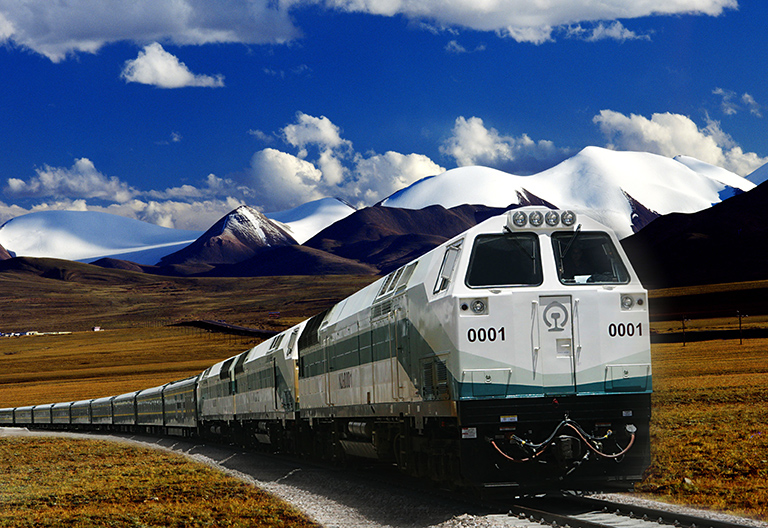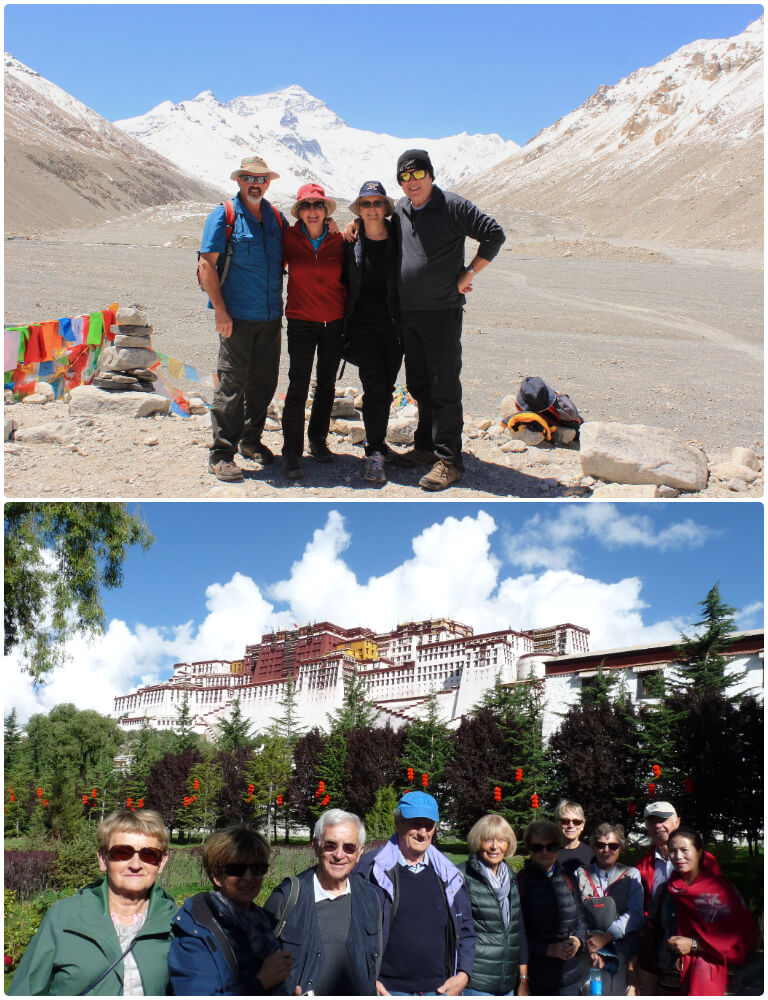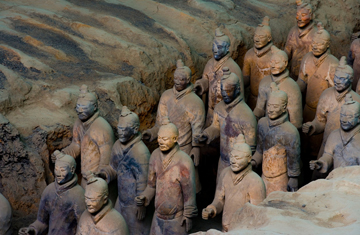Oxygen Supply on Tibet Trains
While planning a Tibet tour, most people will worry about the high altitude sickness. Generally speaking, taking a train to Tibet does great help to reduce the risk of high altitude sickness, for the passengers can get accustomed to the high altitude gradually on the way. Tibetan trains also enjoy some advanced supplies featured and design to deal with the low oxygen condition in Qinghai-Tibetan Plateau.
Advanced Oxygen Supply Systems Are Equipped on Tibet Trains
Tibet trains are all equipped with the oxygen supply systems to provide better train experience. There are 2 kinds of oxygen supply systems equipped with on the train to cope with the lack of oxygen on Qinghai-Tibet Plateau. Both of the oxygen supply systems will begin to operate when the trains move into Qinghai-Tibet Plateau Zone. And when the oxygen supply systems are working, smoking is forbidden in all the carriages.
One is a ‘dispersion-mode’ oxygen supply system above the windows of every carriage. It spreads oxygen made by the oxygen generator to the train’s air through the air-conditioning system and keeps the oxygen content of the air about 23%.
The other system is the “distribution-mode” oxygen supply system which can be directly used by passengers through an independent port. You can easily find them below each seat in the Hard Seats Carriages, and near every berth in each cabin of Hard Sleeper Carriage and Soft Sleeper Carriage.
How to Use Independent Oxygen Supply
The train conductors will distribute the disposable pipes to passengers usually before arriving in Golmud. If not, you can ask for it when the high altitude sickness (like headache, expiratory dyspnea, or other difficulties) occurs. Connect the disposable pipe to the oxygen outlet first, put the other end of the pipe into your nostrils then and you can breathe the oxygen freely. There are also oxygen supply tubes and mask on each cabin for an emergency. It can be said that the individual oxygen outlets are almost everywhere in the Tibet train.
Call for Medical Service
Every train to Tibet is equipped with one doctor and one nurse. Therefore, you don’t need to worry much about the high altitude. If you get serious high altitude sickness or some other physical problem, call the doctor or ask the train staff for help immediately.
 A work is operating the oxygen supply
A work is operating the oxygen supply
 Oxygen Port under the Seats
Oxygen Port under the Seats
 Oxygen Outlet near the Sleeper
Oxygen Outlet near the Sleeper
Specially Designed Train Structure
With airtight-type structure, the trains can well control the intensity of turbulence in high plateau and improve the smoothness of running, which offers a more comfortable journey to the passengers. The imbalance between the internal and external pressure might be caused by the high altitude effect, but the windows of Tibet trains can adjust the press automatically. The pressure in the carriage wills changes with the altitude, which does help in releasing the sickness of passengers.
 Special Designed Train to Tibet
Special Designed Train to Tibet
Change to Plateau Train with Oxygen Supply System at Xining Railway Station
It is announced that a passenger who takes a train from Chengdu, Chongqing, Shanghai or Guangzhou to Lhasa will have to change to a Plateau Train with Oxygen System at Xining Railway Station. If one takes a train from Lhasa to Chengdu, Chongqing, Shanghai or Guangzhou, he/she also needs to change to a regular train at Xining Railway Station. The policy has been put into practice since April 19, 2017, and will continue to the end of Summer School Vacation in China (around late August). (Note: If you are taking the train Z21 (Beijing to Lhasa), Z917 (Lanzhou to Lhasa), Z918 (Lhasa to Lanzhou), you don’t have to change trains at Xining Railway Station.)
 Change Train at Xining Railway Station
Change Train at Xining Railway Station
How to Plan A Tibet Tour
Tibet is a place with majestic landscapes and splendid culture. There might be hundreds of ways to travel Tibet, especially its most appealing destinations - Lhasa, Everest, Namtso, Kailash, etc. We suggest you start your tour from the capital Lhasa. You can take 3~4 days to acclimatize high altitudes and explore the highlights of Lhasa city. Then you can spend 1~2 days to visit Lhasa's surroundings, such as Namtso, Yamdrok Lake, Ganden Monastery, etc. Beside Lhasa and its surrounding regions, you shall not miss the 3rd pole of the earth, Mt Everest, which is no longer a privilege site for just mountaineers and spending 3~4 more days to explore it.It totally depends on your schedules and preferences.
Top Recommended Tibet Tours by Train
☛ 10 Days Beijing Xian Lhasa Memory Tour by Train
☛ 8 Days Lhasa Tour from Beijing by Train
Tibet Train Routes and Gateway Cities
- Beijing Lhasa Train
- Shanghai Lhasa Train
- Chengdu Lhasa Train
- Chongqing Lhasa Train
- Guangzhou Lhasa Train
- Lanzhou Lhasa Train
- Xining Lhasa Train
- Xian Lhasa Train
- Lhasa Shigatse Train
- Lhasa Nyingchi Train
- Yunnan Tibet Railway
- Sichuan Tibet Railway
More Information about Tibet Train
- How to Book, Collect, Alter and Cancel Train Ticket
- How to Read Tibet Train Ticket and Ticket Maps
- Change Tibet Trains at Xining Since April 19
- Tibet Train Sleeper and Seat Types
- Soft Sleeper on Tibet Trains
- Hard Sleeper on Tibet Trains
- Hard Seats on Tibet Trains
- Tibet Lhasa Train Schedule & Ticket Price
- Facilities and Amenities on Tibet Trains
- Oxygen Supply on Tibet Trains
- Medical Service in Tibet Trains
- Toilet and Bathroom on Tibet Trains
- Dining on Tibet Trains
- Tibet Train Luggage Allowance and Restriction
- How to Board & Disembark Tibet Trains
- Qinghai Tibet Railway Facts and Features
- What to see along the Qinghai Tibet Railway
- Latest News about Tibet Train
- Tibet Travel Permit and Tibet Train Travel
- Lhasa Railway Station
- Tibet Railways Map
- Tibet Train FAQs
Recommended Tibet Train Tour Packages
Check out our most popular train tour packages departing from most popular gateway cities to Tibet - Beijing,Xian, Chengdu, Xining, Shanghai, etc. All packages are customizable according to your requirements. If you have more time, you can extend your trip from Lhasa to other popular destinations, such as Shigatse, Mount Everest, Nyingchi, Ngari, etc. Check more >Tibet Train Tours
-

Beijing / Lhasa
8 Days Lhasa Tour from Beijing by Train
Highlights: Forbidden City, Great Wall, Potala Palace, Sera Monastery
-

Chengdu / Lhasa
7 Days Lifetime Tibet Train Tour from Chengdu
Highlights: Chengdu Panda Base, Qinghai Tibet Railway, Potala Palace
-

Xining - Lhasa
6 Days Discover Tibet Train Tour from Xining
Highlights: Qinghai Tibet Railway, Potala Palace, Jokhang Temple
Have a question? Get answers from our travel experts soon!
- Your Question:
- Your Name:
- Your Email:
- Submit




 Karen
Karen Wonder
Wonder Jack
Jack Rita
Rita Johnson
Johnson Vivien
Vivien Wing
Wing Ariel
Ariel Leo
Leo Tracy
Tracy Evelyn
Evelyn April
April Phoebe
Phoebe Kelly
Kelly Shirley
Shirley Reya
Reya Juliet
Juliet Elk
Elk Felix
Felix Sean
Sean